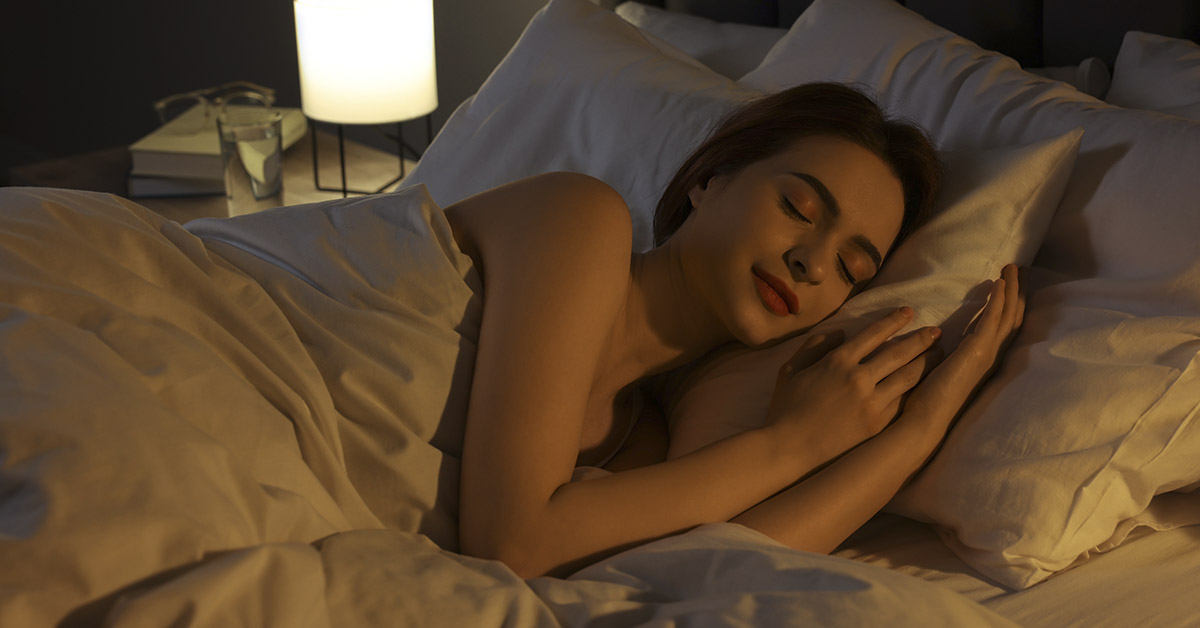Health experts recommend adults get about seven to nine hours of sleep every night, but this rule has a huge asterix. The truth is everybody’s sleep needs are different. It’s more important to experiment with lengths and routines that optimize your health instead of sticking to a pre-conceived rule. However, research has uncovered helpful guidelines, such as how sleep is more restorative if it passes through REM and non-REM cycles and follows a natural circadian rhythm. Now, scientists have discovered that, on average, women need more sleep than men.
Gender Differences in Sleep
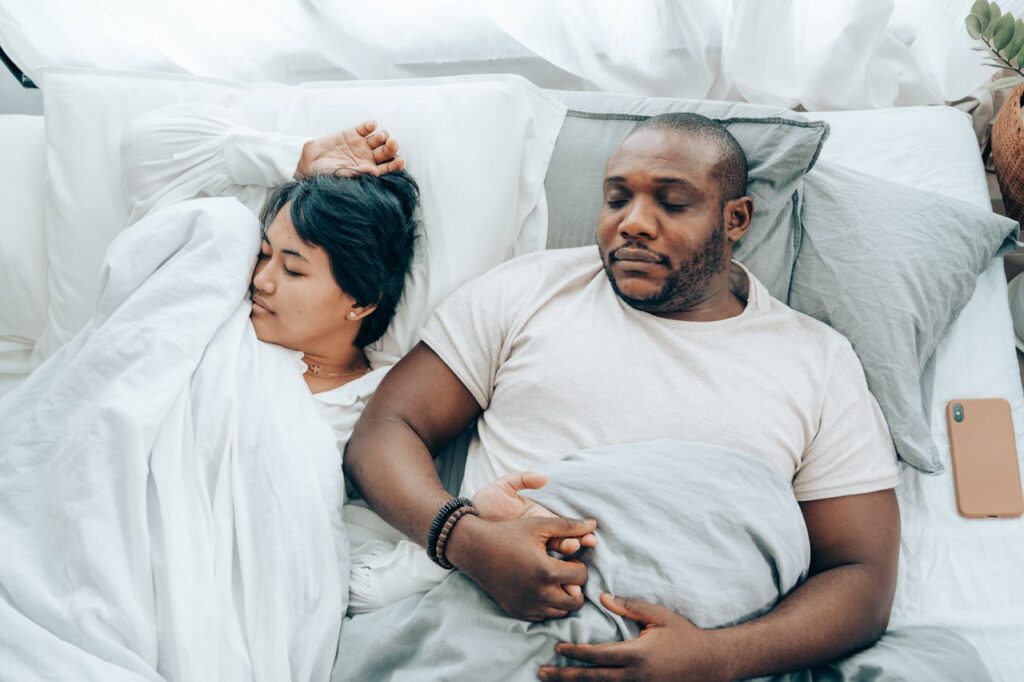
One study found that women typically slept about 11 more minutes a night than men. There’s no exact answer as to why but it does point to gender-based biological differences in sleep needs. “Women typically have more issues affecting their sleep, so they may need slightly more of it to make up for disrupted sleep or poor-quality sleep,” said sleep disorders specialist Michelle Drerup, PsyD, to Cleveland Clinic.
Hormonal Changes
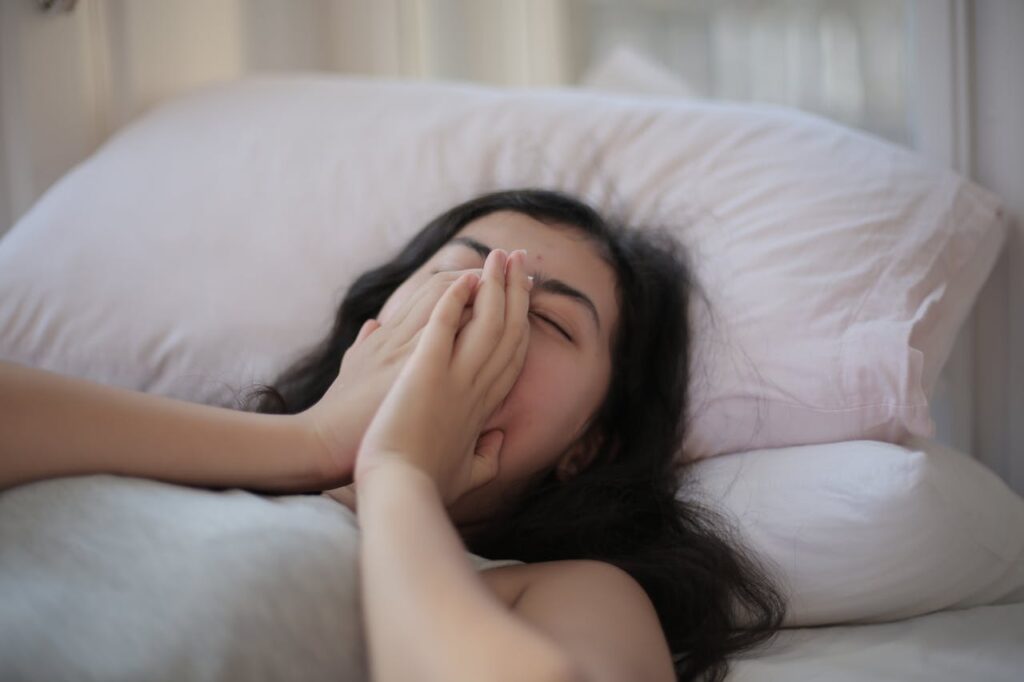
For example, hormonal changes can increase sleep disturbances. “Women experience hormonal changes monthly with menstrual cycles and with major life stages, like pregnancy, breastfeeding, perimenopause and menopause. The hormonal changes that occur with menopause are especially damaging to quality sleep.” These effects can include more difficulty falling asleep, more shallow sleep, and a higher risk of sleep disorders and sleep-disrupting chronic health conditions like thyroid disease.
Depression and Anxiety
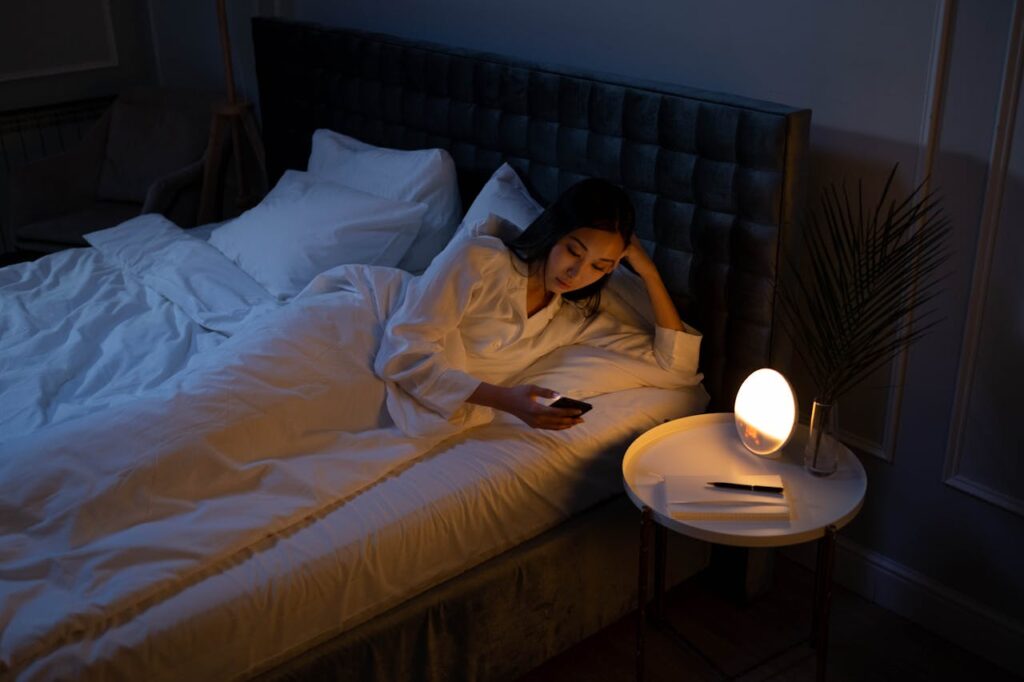
Mental health and sleep are intertwined. In many cases, when one goes poorly, so does the other. “Women are twice as likely as men to have anxiety and depression,” Drerup said. “And both conditions are associated with insomnia.” In fact, the Sleep Foundation says that 80% of people with depression have insomnia, 20% have obstructive sleep apnea, and 15% have oversleeping issues. Treating depression and anxiety can help improve sleep, and treating sleep problems can help alleviate symptoms of depression and anxiety.
Sleep Disorders
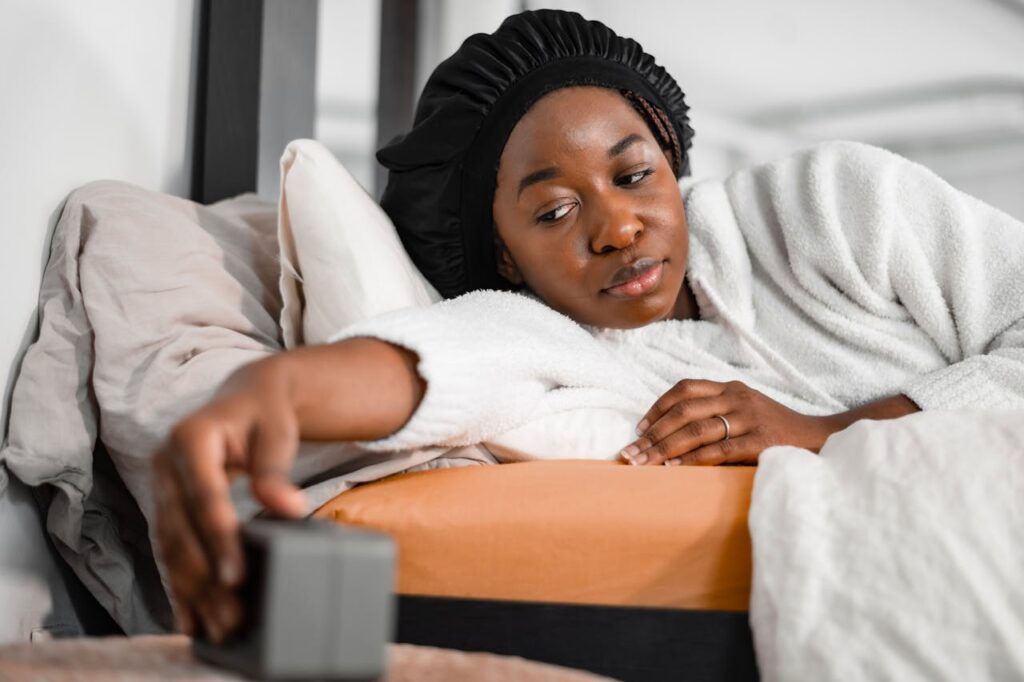
Women are more likely to have sleep disorders compared to men, and this propensity increases with age. This includes restless leg syndrome, insomnia, sleep-related eating disorders, and sleep-distrupting chronic conditions like migraines, arthritis, and fibromyalgia. Sleep disruptions are also commonly due to menstrual cramps and headaches, PMS, and pregnancy. “Men have significantly higher rates of OSA (obstructive sleep apnea) than women, but after menopause, the risk is the same for both sexes,” said Drerup. “Women often have less-obvious symptoms, though, like light snoring or morning headaches. The condition affects their ability to sleep well.”
Lifestyle Factors
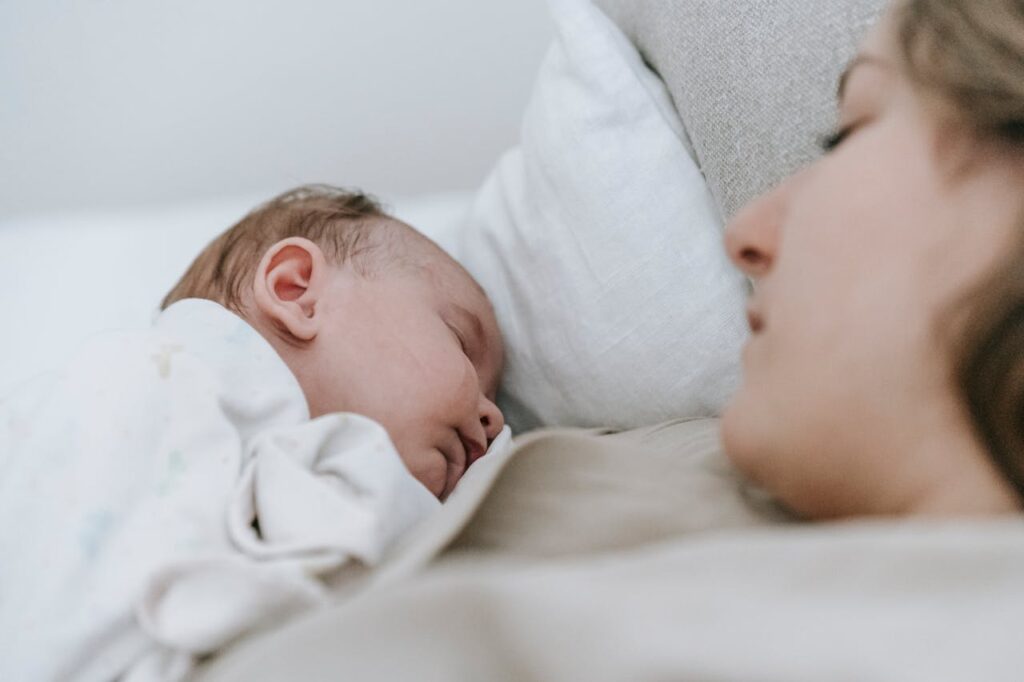
Women may need more sleep than men, but many are not getting it. Even the ones with those extra 11 minutes may not have good-quality, restorative sleep. In fact, research shows men usually get better quality sleep than women. One reason is that women are more likely to take care of others during the night, like children or elderly parents. They are also more likely to nap during the daytime, which can lead to poorer sleep at night. Additionally, female night shift workers tend to have less restful sleep, and a higher risk of heart disease, breast cancer, and irregular menstrual cycles, according to the Sleep Foundation.
Women Multitask More?
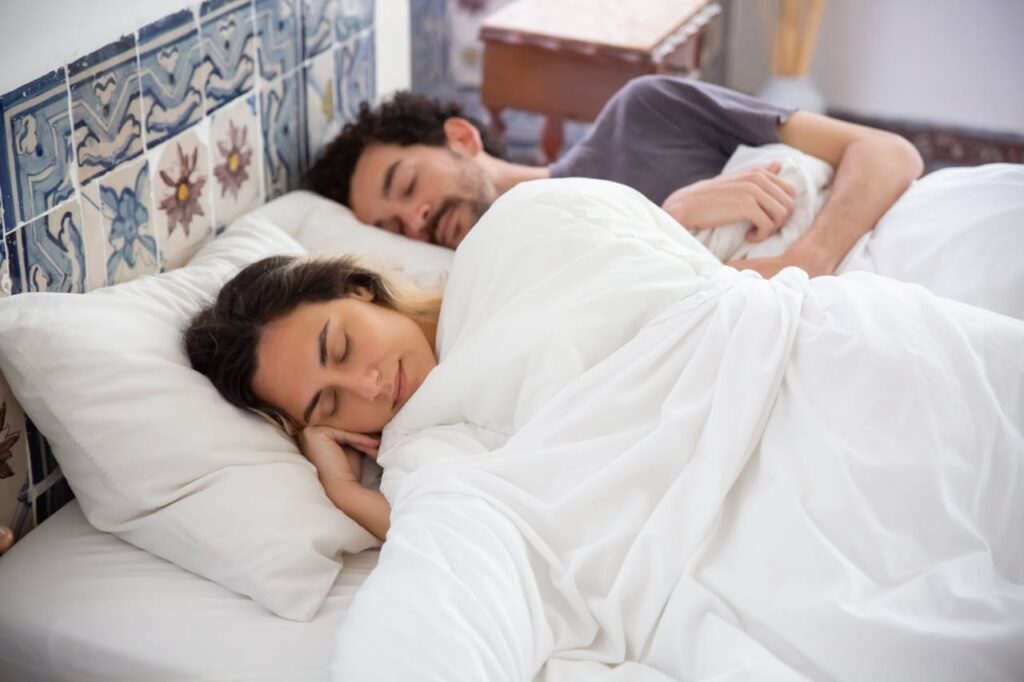
Some scientists theorize that women multitask and use more of their brains than men and therefore need more sleep. However, there’s little research to back this belief. “From an evolutionary standpoint, multitasking is more ingrained for women because of the caretaker role, and so I do think women are better at multitasking more generally,” says Annie Miller, a licensed therapist at DC Metro Sleep and Psychotherapy, to Everyday Health. Despite public belief, there’s not much scientific evidence proving that women’s brains are wired to be better at multitasking than men’s. As Michael Grandner, PhD, a clinical psychologist and the sleep research director at the University of Arizona, says, “We all use 100 percent of our brains all the time.”
Signs You are Not Getting Enough Sleep
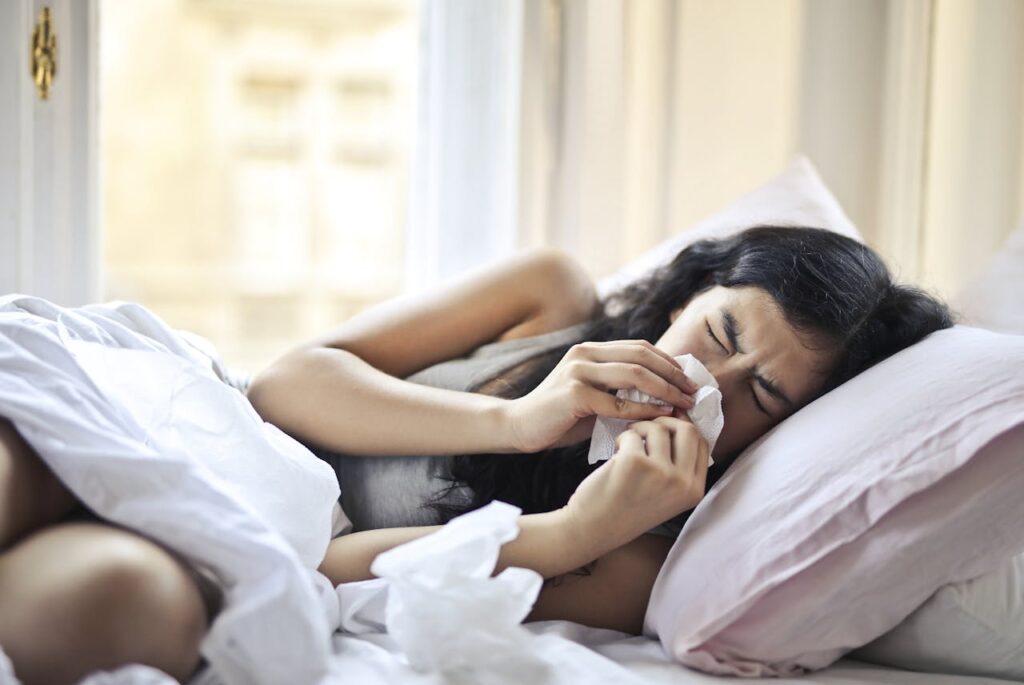
https://www.pexels.com/photo/woman-lying-on-bed-while-blowing-her-nose-3807629
If you are unsure if your current sleep routine is working for you, here are some indicators that there’s room for improvement, according to WebMD:
- Dependency on caffeine and other stimulants to get through the day
- A weakened immune system
- Mood changes, irritability, frustration, and feelings of depression
- Drowsiness or falling asleep during calm activities like watching a movie or driving
- Grogginess in the mornings or throughout the day
- Difficulty getting out of bed
- Trouble concentration
- Forgetfulness
- Slower reaction times
- Difficulty making decisions and solving problems
- Overeating and weight gain
- Dark circles and wrinkles around the eyes
- Lowered libido
- Reliance on alarm clocks (since the body is too exhausted to wake up naturally)
- Sleeping in late on weekends
- Lack of motivation
- High blood pressure
- Stronger pain signals
Don’t Underestimate Sleep
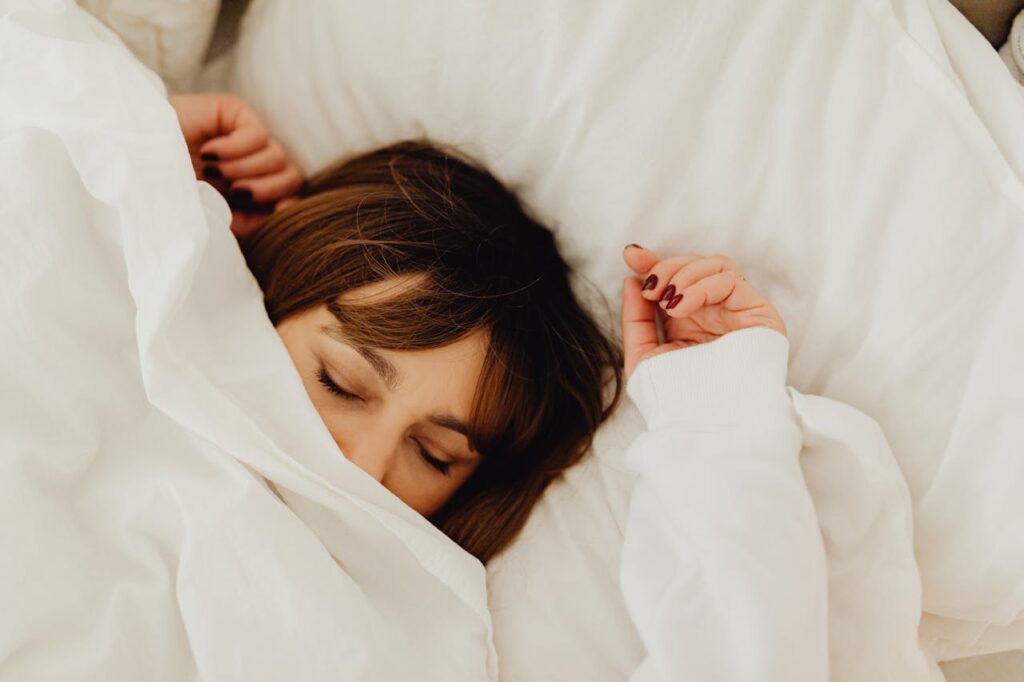
Women may need more sleep than men, but sleep is equally important for everyone. It’s one of the main pillars of health, alongside physical exercise and good nutrition. Restricting sleep can actually hurt your productivity and wellbeing in the long term. So you should develop healthy nocturnal habits, the same way you plan workouts and diet plans. And as for all three pillars, it’s more effective to try one new habit at a time to see if it helps. You are then more likely to stick to it.
Tips for More Better Sleep
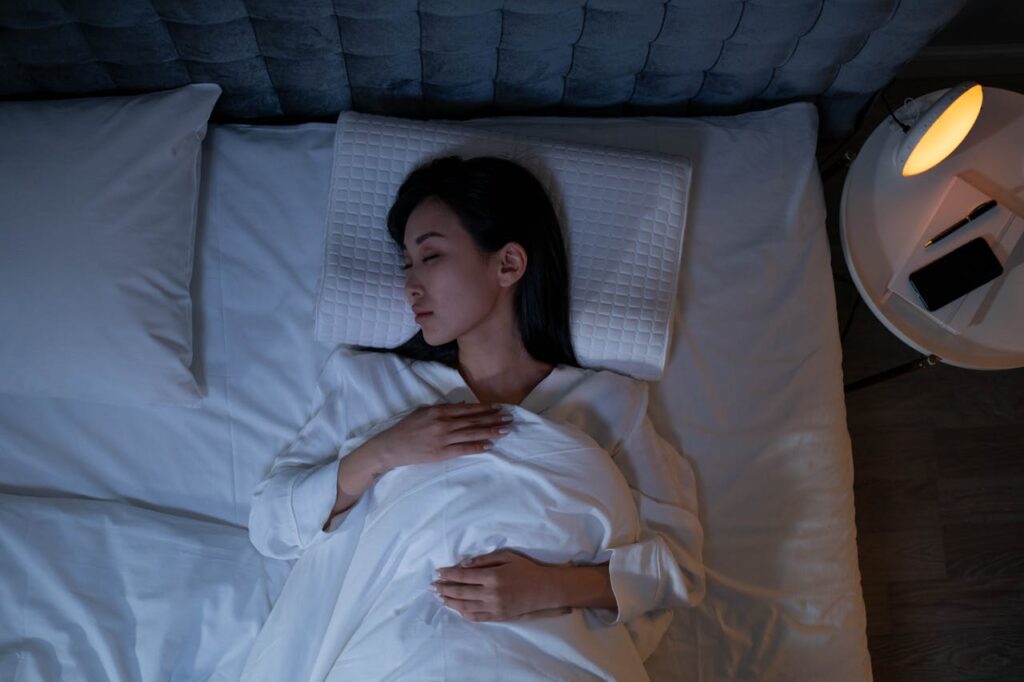
- Avoid naps to make sure you are tired at bedtime. If you can’t get through the day, sleep less than an hour and get up before 3 p.m.
- Exercise in the morning or early afternoon, but not within four hours of bedtime.
- Only use your bed for sleep (and intimacy) to create a mental association between your bed and rest.
- Don’t consume caffeine and nicotine at least six hours before bed.
- Don’t use alcohol to fall asleep. It may help with drowsiness but it leads to fragmented, non-restorative sleep.
- If you can’t fall asleep (or back asleep) within 20 minutes, get up and do something boring in another room that’s dimly lit.
- Avoid screens for two hours before bed. If you must use them, use blue-light filters or glasses.
- Take a hot shower or bath before bed.
- Ensure your room is comfortable, cool, and quiet.
- Get up and go to sleep at the same time, even on weekends
- Don’t go to bed hungry or too full.
- Wind down in the evening to tell your body it’s almost time for sleep. Your pre-bedtime routine can involve relaxing music, herbal tea, meditation or deep breathing exercises, reading, and other calming activities.
- Help set your biological clock by getting sunlight for 15 minutes first thing in the morning.
